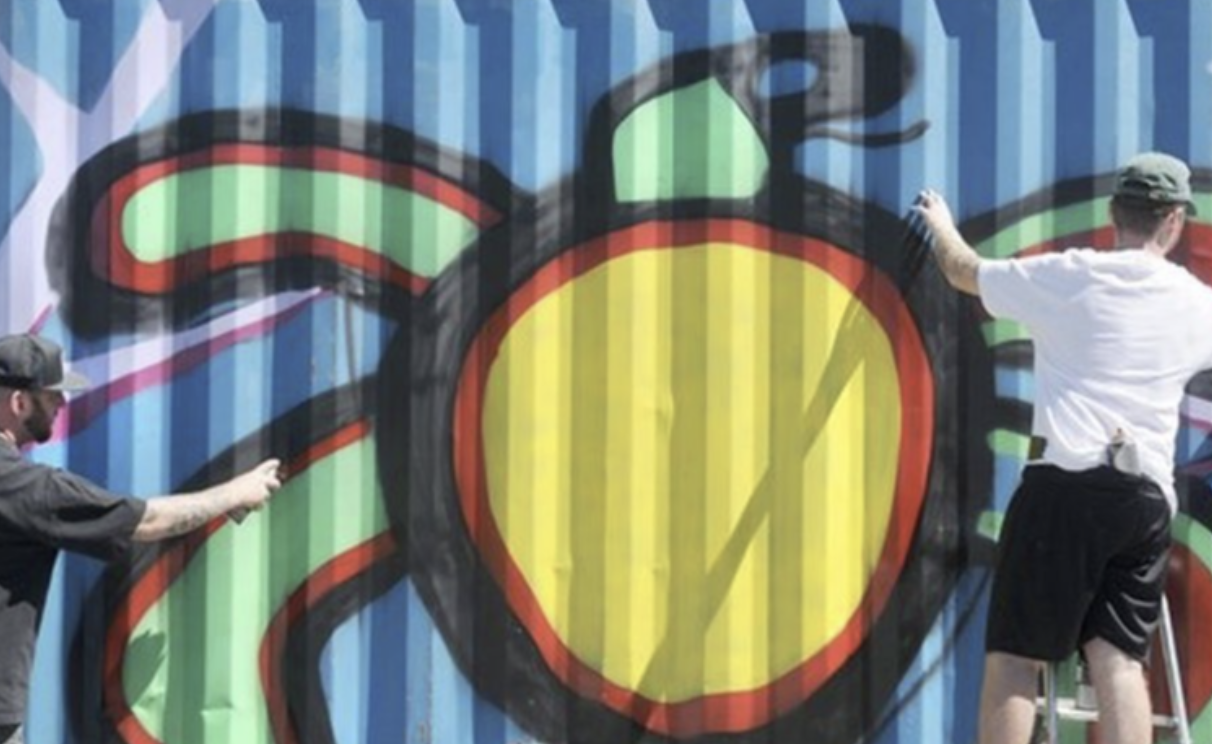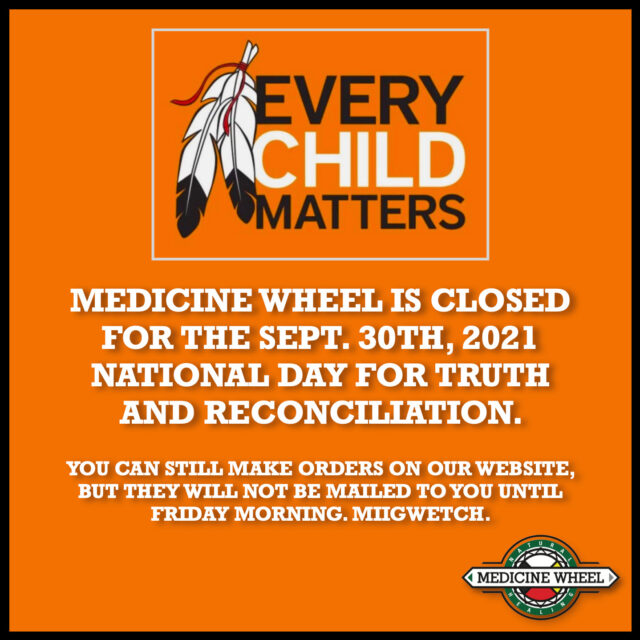David George-Cosh, BNN Bloomberg, September 28, 2018
Take a drive two hours east of Toronto, hang a left on Highway 45 and you’ll soon find yourself passing through the Alderville First Nations community. On a blink-if-you-miss-it stretch of road that locals call the “Green Mile,” nearly a dozen pot shops offer a glimpse into how Canada’s cannabis could be sold in the future.
The stores range from fully-outfitted standalone buildings to retrofitted 40-foot shipping containers, selling cannabis products that include dozens of flower options, concentrates, and infused edibles such as cotton candy, drinks and potato chips to locals and nearby residents. Many customers are cottage-goers who stock up for the weekend.
Alderville’s cannabis stores also exemplify the challenge that First Nations businesses face, especially those which seek to pursue a legitimate business in the grey area of selling marijuana. Despite how First Nations communities are governed by federal law, Alderville has forged ahead and sold recreational cannabis ahead of Canada’s Oct. 17 legalization date. The businesses are also selling some forms of the drugs, such as edibles, which aren’t expected to become legal until October 2019.
At the centre of Alderville’s so-called “Green Mile” is Rob Stevenson, the owner of Medicine Wheel Natural Healing, the community’s first pot store which opened about a year ago. Since then, business at its store has blossomed with margins at a healthy 38 per cent, Stevenson told BNN Bloomberg.
“I’ve always been an entrepreneur on multiple businesses unrelated to cannabis but I saw the potential,” he said. “I forecasted kind of an uprising with Indigenous people in regards to cannabis.”
With a staff of about 25 people, including 18 of Indigenous descent, Medicine Wheel moves about 50 to 70 pounds of “green mushkiki” flower a week, all of it packaged in a basement that moves orders to the main floor through a pneumatic tube. Much of the cannabis is sourced from private growers, although Stevenson said he’s built a greenhouse that houses about 1,000 marijuana plants.
On a sleepy Friday morning in August, the store attracted nearly 50 people in the course of an hour through its doors perusing for oils, cannabis infused-chocolate cookies, pre-rolled joints and topical creams. At the back of the shop, a lab outfitted with a $35,000 spectrometer checks for quality issues such as mould, mildew and tetrahydrocannabinol (THC) and cannabidiol (CBD) content.
“As far as I’m concerned this is sovereign territory. We have the power to create our own industry within the cannabis industry and I think as First Nations Indigenous people, this is one of the steps to reconciliation,” he said.
David Sharpe, chief executive of Bridging Finance and member of Tyendinaga First Nation, said that despite any regulations put in place by Ontario, members of First Nations communities have the right to sell cannabis on their reserves without a retail license, eschewing proposed legislation from Queen’s Park.
“If [the provinces] say, well, we have a sovereign right to control our land and control the economic development on our land, it’s going to be an interesting fight, potentially a constitutional fight as we move along,” Sharpe said.
On Thursday, the Ontario government outlined its proposed legislation for cannabis retail operations in the province and highlighted how it intends to regulate businesses that are established on First Nations land. Queen’s Park proposed that before the provincial regulator can authorize a cannabis retail store to operate on a reserve, it would require a band council resolution to approve it first.
Engagement with the First Nations has so far been paramount with the Canadian government to ensure the specific interests of Indigenous communities are carefully considered and supported, said Eric Costen, director general of strategic policy for cannabis legislation at Health Canada. That includes providing economic development and support to those who want to be involved in the cannabis industry, as well as addressing governance and jurisdictional issues.

“It’s safe to say that interest in how the changing cannabis laws will impact [Indigenous] communities has reason to be one of the top issues that we want to deal with with First Nations,” Costen said at the Elevate Conference in Toronto on Wednesday.
Still, First Nations make up a tiny proportion of the cannabis production industry nationwide. Just six of Canada’s 115 licensed cannabis producers have direct affiliations with First Nations communities or organizations, according to Health Canada data analyzed by Marijuana Business Daily. The report also found only 18 of the 588 groups awaiting Health Canada approval to produce cannabis, or roughly three per cent, are affiliated with Indigenous Canadian groups.
The pot shops, which are popping up across several First Nations reserves in Ontario such as Alderville and Tyendinaga, near Kingston, Ont., also serve as a model for what the province should expect to see next April when private cannabis stores can open their doors.
In the absence of legislation that regulates retailers, the community has taken it upon itself to make sure that the product that they sell is tested and not sold to minors, said Tyler Marsden, co-owner of the Healing House.
“We are setting these bylaws in place for ourselves as a model of self-regulation so even come April when Doug Ford wants Ontario to have private retailers, this is a good example of the sort of bylaw structure that other retailers could adhere to,” he said.
It’s also providing Alderville’s small community of roughly 300 people with viable job opportunities. Roughly one-fifth of the entire town is employed in some capacity in the cannabis business.
“Everyone is getting employed around here, this is an opportunity for you to work and make good money and support your own families with what we do here,” Marsden said.
Cannabis Canada is BNN Bloomberg’s in-depth series exploring the stunning formation of the entirely new – and controversial – Canadian recreational marijuana industry. Read more from the special series here and subscribe to our Cannabis Canada newsletter to have the latest marijuana news delivered directly to your inbox every day.


